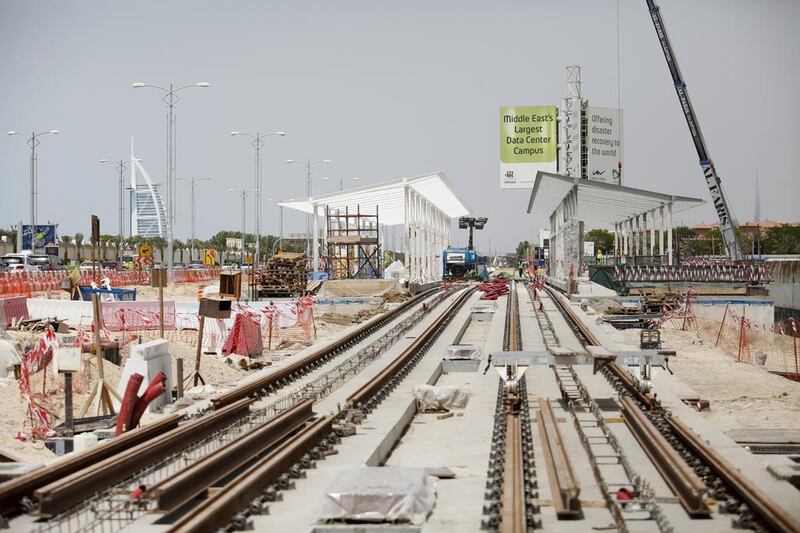ABU DHABI // The UAE is investing more than Dh82.3 billion in five different railway projects overseen by the National Transport Authority.
The Etihad Rail, Abu Dhabi Metro, Abu Dhabi Light Rail, Dubai Metro and Al Sufouh Tramway projects were designed to boost the national economy, said Dr Abdullah Belhaif Al Nuaimi, Minister of Public Works. "We believe that developing the national railway network will benefit the national economy and make it a centre of transport and logistics in the region, and the land passenger and freight transport network more sustainable," he said.
A statement from the NTA, also headed by Dr Al Nuaimi, said the large investment demonstrated the Government's belief that rail travel was a way to reduce dependency on motorways and make commuters' lives easier.
Other benefits that will come with the railways are a reduction in road accidents and congestion, and in carbon emissions.
“Furthermore, the Government is committed to promoting the UAE’s image as a regional and international centre of trade by encouraging international investment and participating in the implementation of projects at all levels in this sector,” the statement said.
The first project to be completed will likely be the first phase of the much-anticipated national railway network, Etihad Rail.
Dr Al Nuaimi has said the railway’s industrial line, which will be used to transport cargo of sulphur from the Shah sour gasfield to Habshan, would be completed this year.
The major industrial areas will eventually be connected through 628 kilometres of track.
The railway will serve commuters and connect to the planned GCC railway network.
Al Sufouh Tramway, a project that was paused after the global economic downturn, is set for completion next year.
Other long-term projects include the Dubai Metro’s Blue, Gold and Purple lines, and a Jumeirah tram route set for 2030. The Metro will link up to the Etihad railway once completed.
While no date has been set for the Abu Dhabi Metro and Abu Dhabi Light Rail, construction companies have bid for the contracts.
The NTA recently agreed to partner with Terrapin International for February’s Middle East Railway Conference in the capital.
The conference will bring GCC ministers of transport together to discuss the latest trends in the industry.
“We consider the Middle East Railway Conference and Exhibition an opportunity to rally the resources of the public and private companies to hold a world-class conference and exhibition in the Middle East,” Dr Al Nuaimi said. “A main function of NTA is to improve the land transport sector in the UAE.”
Matthew Williams, managing director of Terrapin, said the Middle East has set aside US$250bn (Dh918.2bn) for rail projects.
In the Arabian Gulf, Qatar and Saudi Arabia were the biggest investors.
Qatar has set aside $36.8bn for four projects, which include Qatar Regional Passenger Rail, Light Rail Transit, West Bay People Mover and Doha Metro.
Saudi Arabia has set aside $44.8bn for the Saudi-Bahrain Rail link, the Jeddah Metro, Landbridge, the Haramain High-Speed Rail, North South Railway Line, Riyadh Metro and Mecca Metro.
Only one railway project has been set for Oman ($15.5bn), Kuwait ($7bn) and Bahrain ($7.9bn).
osalem@thenational.ae






